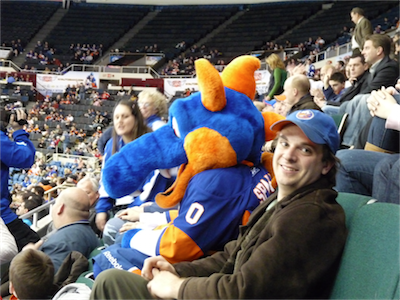
Going into the latest CBA negotiations, we heard a familiar refrain from the last time the league imposed a lockout: some teams will lose less money not playing the season than they will if they do play. Which says a lot about the NHL and it’s business.
Can you imagine if you ran a small business that was more successful the less business you did? Does that make any sense? Of course it doesn’t. If you were serious about making your business a success, or at the least make it break even, you would reexamine your business plan.
Which is what the players brought to the table in their CBA offerings. They brought a new structure to the owners that would help the smaller market, money losing teams. They even conceded to taking less money, something no union in the world ever wants to do. It’s never in the best interest of a union or collective bargaining association to take less money, unless it’s to save the business they are working in. That alone tells you that the players took their tactic seriously.
We know what happened next. The owners dismissed the offer out of hand. As Merlin Mann says,
[blackbirdpie url=”https://twitter.com/hotdogsladies/status/12546802419″]
The owners don’t want the players running their businesses. It’s equivalent to making the players true partners in the league, not just partners in name only, as they were after the last lockout.
If you are the NHLPA, and you bring another proposal to the table, you have several groups you need to satisfy:
– The larger market owners, like the Rangers, Kings, Wild, Blackhawks and every Canadian franchise (yes, even Winnipeg). They have enough money to make a profit, so they want one thing only, more money. That means more salary rollbacks and less of that money going elsewhere. They believe that they earned it (and a few of them have), rather than being a beneficiary of circumstance. Like stepping out of ownership in Nashville and into ownership in Minnesota.
– The smaller market owners, who are bleeding money. They need support in a system designed to make their operating costs go up the more successful other franchises become, regardless of how their market is doing. They want a bigger piece of that $3.3 billion they keep hearing about, but aren’t seeing. And the direct way to that piece is to take it from the players. The larger markets will fight them to the death to keep their profits from going to the smaller markets, EVEN THOUGH the smaller market teams are as much are reason for the success of the league and the bigger market teams than anyone else. The larger markets don’t get 82 games a season only playing 10 other teams.
– Gary Bettman and management. If Bettman doesn’t get an NBA-sized concession from the players, he will look like a tool. You could argue that he already does, this being his third CBA negotiation leading directly to a lockout in a row, but for some reason, that doesn’t resonate. His success will rest on two numbers alone, how much larger the $3.3 billion dollars can grow, and the percentage of that overall take that goes to the “owners.” I say owners in quotes because it won’t go to the owners in an even or fair way. How the money is distributed doesn’t matter to his legacy, and you better believe he is building a legacy.
There is only one thing that will satisfy all three groups: less money to the players. The NHLPA were foolish enough to believe that they could make a proposal that would benefit the league as a whole, because the league doesn’t live as a whole, it lives as thirty siblings in the same family. Foolish as they were, they were also bold and correct. Even if the league will never dance to the player’s tune, they should be humming along because the players proposal is much closer to saving a thirty-team league than what the owners are demanding.
In an odd way, the owners are falling into the same trap as the fans have, believing that the money being spent on players is the main reason the owners are losing money. It’s a factor, yes, but it isn’t the entire factor, and probably not the one needing the most adjustment. This is how the owners should be saved from themselves. They need a more even business model, the dreaded redistribution that the league doesn’t want to touch. It would reduce sovereignty across the thirty teams. The league doesn’t want that responsibility, and the teams don’t want to lose the independence.
Which means they will still be losing money when the players give back a bunch of money again. Just like last time.